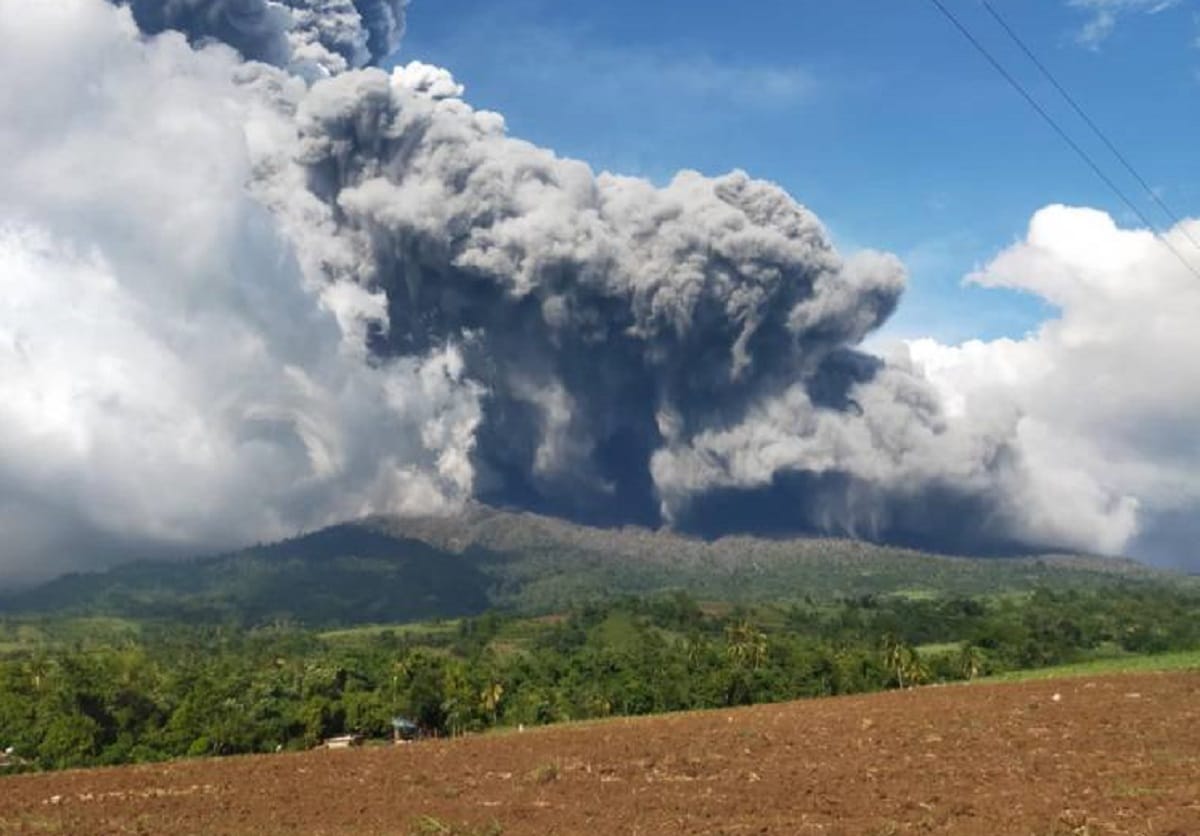Marcos: ‘Reliable information’ needed amid Kanlaon eruption

Kanlaon Volcano in Negros Occidental erupts on Monday, December 9, 2024. INQUIRER FILES
MANILA, Philippines — President Ferdinand Marcos Jr. on Friday stressed the importance of disseminating “reliable information” amid the eruption of Kanlaon Volcano in Negros Island, stressing that misinformation in such a disaster “will kill.”
Marcos made the pronouncement as he reiterated that the government is already taking the necessary actions to assist Filipinos affected by Kanlaon’s eruption.
READ: Gov’t ready to assist families affected by Kanlaon eruption – Marcos
“Malaki ang papel ng komunikasyon sa mga araw na ito (communication is essential in these times). [The] truth will save lives. Fake news will kill,” Marcos said in a video message for those affected by the eruption of Kanlaon Volcano.
“Effective disaster response is anchored on reliable information,” he added.
Article continues after this advertisementThis, said the President, is why the Philippine Institute of Volcanology and Seismology is committed to issuing 24/7 advisories made to be understood by all.
Article continues after this advertisementMeanwhile, regarding disaster response, Marcos said the government is closely monitoring the situation in Kanlaon while coordinating with affected local governments.
READ: Thousands evacuated as Mt. Kanlaon erupts anew
Marcos said he had already ordered the Department of Budget and Management to release funds to help assist those affected by the eruption, the Department of Social Welfare and Development to assist those affected, and the Department of Health to address illnesses caused by volcanic ash.
He also said the Armed Forces of the Philippines, the Philippine National Police, and the Bureau of Fire Protection have already been placed on “high alert” in Negros Island.
“We will step up. We will level up. Any escalation in damages and destruction will be met with a stronger government response,” he said.
Kanlaon Volcano erupted on Monday, Dec. 9, prompting state volcanologists to raise the alert level to 3, which indicates magmatic unrest.
The eruption produced a voluminous plume that rapidly rose to 3,000 meters above the vent and drifted west-southwest.